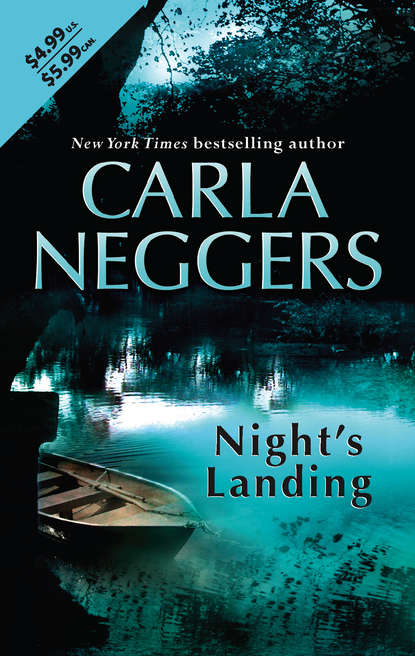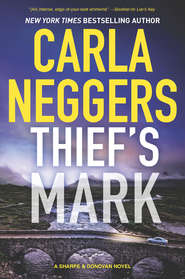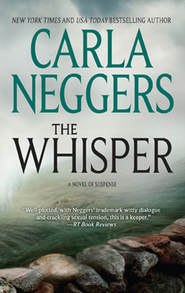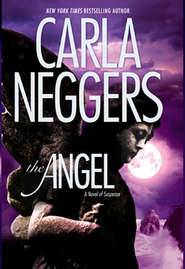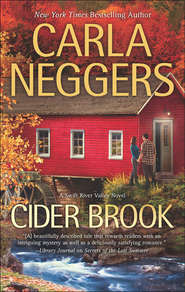По всем вопросам обращайтесь на: info@litportal.ru
(©) 2003-2024.
✖
Night's Landing
Автор
Год написания книги
2018
Настройки чтения
Размер шрифта
Высота строк
Поля
“Mr. Brooker? It’s me, Conroy Fontaine.” The accent was distinctly Southern, the voice amiable, familiar. “Would you mind if I had a word with you?”
Ethan stifled a groan. Just what he needed, a bottom-feeding reporter who liked to pass himself off as a legitimate journalist-historian. Before he could respond, Fontaine was at the door. He was working on an unauthorized, tabloid-style biography of the president. He’d set up shop a couple weeks ago at a cabin he’d rented at a fishing camp farther up river from the Poe house. He was worming his way into Sarah’s good graces, presumably in an attempt to get access to the president and dig up any dirt he could find—not that she was anyone’s fool. As far as Ethan had seen, so far she hadn’t told Fontaine much more than what kind of mint extract she used in her sweet tea punch.
He and Ethan were about the same age, but Conroy Fontaine seemed like a throwback to another generation, pre—World War II, maybe even pre—World War I. He was unfailingly polite and tended to dress in penny loafers with no socks, chinos, polo shirts and a retro Timex watch. He wore rimless glasses and his sandy-colored hair was getting thin on top, but he kept himself in decent shape. Nearly every morning, Ethan would see him up on the road jogging what he said was a six-mile route. He must also pump iron, given his muscle mass, but where he did that, Ethan didn’t know or care.
He opened up the screen door, then remembered his good ol’ boy act. “What can I do for you, Mr. Fontaine?”
“I’m sorry to bother you so late. I’ve been working all day on my book. I didn’t have the radio on. I just heard the news—”
“Yes, sir, it’s an awful situation.”
Conroy shook his head in obvious despair. He had a broad forehead, a strong jaw—not a bad-looking guy. “It’s terrible. Sarah’s gone to New York?”
“She left a short time after she heard about the shooting.”
Fontaine took in a breath. “Good heavens. I simply can’t imagine. The FBI just held a press conference—it was carried by all the news channels. Rob Dunnemore’s still in critical condition, but at least he’s stable. He made it out of surgery. Sarah must be beside herself.”
Ethan noted the familiar way Fontaine talked about Sarah and wondered if they’d struck up a real friendship since she’d arrived back in Night’s Landing. He turned on the tap at the sink and rinsed off his barbecue plate. “She was pretty upset when she left here, Mr. Fontaine.”
“Understandably. Do you know anything? Anything that’s not on the news? Are the parents flying in from Amsterdam? Will Rob be brought down here to recuperate—”
“If I knew anything,” Ethan said, turning from the sink, “I don’t believe I’d tell you. No offense, sir, but you’re a reporter. It’s not my job to blab family business to reporters.”
Conroy’s back stiffened visibly, but he smiled. “No offense taken, but you’re quite wrong about me. If I were the kind of reporter you obviously think I am, I’d be on the phone to CNN right now alerting them to Rob Dunnemore’s connection to the president. But I haven’t done that.”
“No money in it?”
“Name recognition. That would help me with my book when it goes to press.” He sighed, his shoulders sagging. “I’ve never been very good at selling myself. My interest is always the story. This book—I’m doing a responsible job on it. I want it to be respectable. The most difficult part…” He trailed off, avoiding Ethan’s eye. “Sarah. I didn’t expect—” He seemed unable to go on.
“You didn’t expect to want her approval,” Ethan finished for him, then added, matter-of-fact, “She’s a beautiful woman.”
Fontaine still didn’t look at him. He nodded, embarrassed. “That’s right. I want to do my best work on this book. I’d like her respect. I’ve read her dissertation, and I understand the documentary she just finished is stunning. I can’t compete with that kind of scholarship. Of course, her work doesn’t focus on the president. What I’m doing is quite different.”
The guy sounded smitten. Ethan got it, but Sarah Dunnemore was sisterlike material as far as he was concerned. “Look, Mr. Fontaine,” he said, “you don’t have to justify yourself to me. What you do is none of my business. I’ll tell Sarah you dropped by and let you know if I hear anything. Fair enough?”
Fontaine seemed pleased, even relieved. “Thank you. It’s a worrisome situation, isn’t it?”
“Sure is, sir.”
“Sarah…I wonder how long she’ll be up there. If she needs anything—”
“I’ll tell her you offered.”
After Fontaine left, Ethan got a beer out of the refrigerator and walked down to the dock. It was dark out, not much for moon and stars. Chilly. He could fly up to New York. Ask questions, stick his nose where it didn’t belong.
Get arrested.
Bad enough having Conroy Fontaine, would-be presidential biographer, sniffing around Night’s Landing. In New York, Ethan’d be facing scores of hard-nosed, cynical reporters who had space and time to fill with whatever they could fill it with, all of them eager for anything that would spin the Central Park sniper story into a new direction for another day or two of audience-grabbing coverage.
He should have used an alias. Never mind Fontaine and a bunch of national and New York reporters—if the FBI and the marshals fed his name into a computer, God only knows what’d pop out.
“Yeah, well,” Ethan said into the night. “Whatever.”
He finished his beer and went back inside.
Six
Nate woke up irritable and in pain, even before he remembered that his uncle and two sisters were in the next room. He rented an apartment in Queens, upstairs from a New York firefighter he’d met in the aftermath of September 11. Gus had invited him up for lasagna until Antonia intervened and reminded him that Nate had just been shot.
Shot.
Right. He pulled on clothes and popped a couple of Extra Strength Tylenol. No bleed-through on his bandages. Had to be a good sign.
Gus was making omelettes from eggs he’d brought down from New Hampshire in a cooler. “Look at them,” Nate said. “They’re orange.”
“They’re not that orange.”
They were that orange. They turned his stomach.
His uncle sighed at Nate’s obvious lack of enthusiasm. “Okay, so eat toast.”
Nate sat at his small kitchen table. The place had come furnished—he didn’t have Antonia’s money or Carine’s design flare, and, basically, he didn’t care. “I’m sorry. I’m not in a great mood.”
“Relax.” Gus lowered the heat under the frying pan. “You’ve been griping about my cooking since you were a little tyke. How’s the arm this morning?”
“Aches.”
Antonia lumbered into the kitchen, rubbing her huge belly. She smiled. “Baby’s tap-dancing. How’re you doing, big brother?” She checked his bandage and made him check his temperature, then warned him, not for the first time, to take his pain medication. “Just do it.”
Fortunately, his brothers-in-law had headed home last night. Nate had room for two guests. Three was pushing it, but five would have driven him over the edge.
Carine, showered and dressed, wandered into the kitchen and sat across from Nate, frowning at him. “You’re going to take a bath or something, right?”
“What, do I smell?”
“You just look like death warmed over.”
He loved his family. He really did. But he preferred being frank with them versus having them be frank with him, and he was rattled and raw from yesterday’s trauma. Dr. Ling had given him the number of a psychiatrist. The USMS had people he could talk to.
He didn’t want to talk to anyone. He just wanted the son of a bitch who’d shot him and Rob off the streets. In a perfect world, Nate would be the one who nailed his ass.
Gus flipped an orange omelette onto a plate and set it in front of Carine, who dug right in.
Nate excused himself and beelined for the bathroom in time for a couple of dry heaves over the john.
When he returned to his family, Gus and his sisters were cleaning up the kitchen and packing. “You need your space,” Carine said. “You always have. But if there’s anything we can do, you know where to find us.”
“Guys—”





